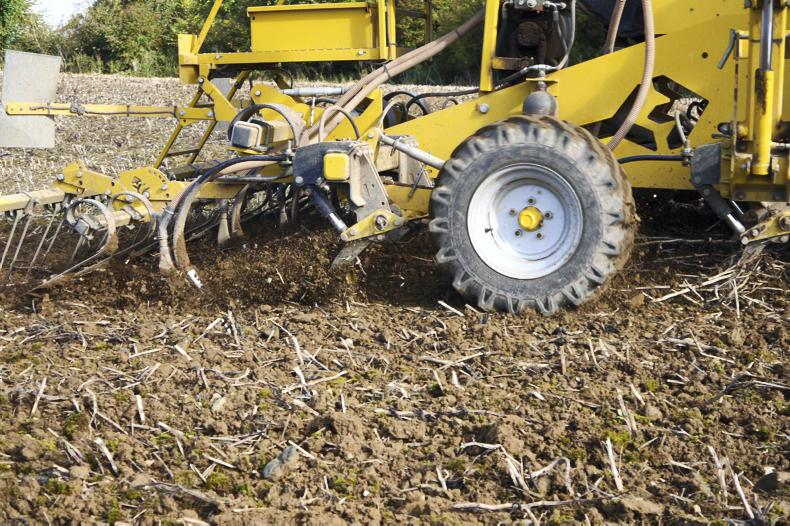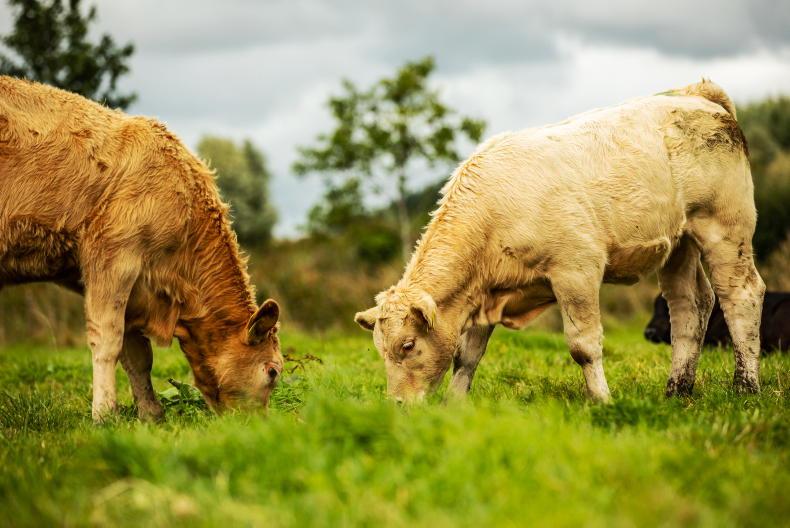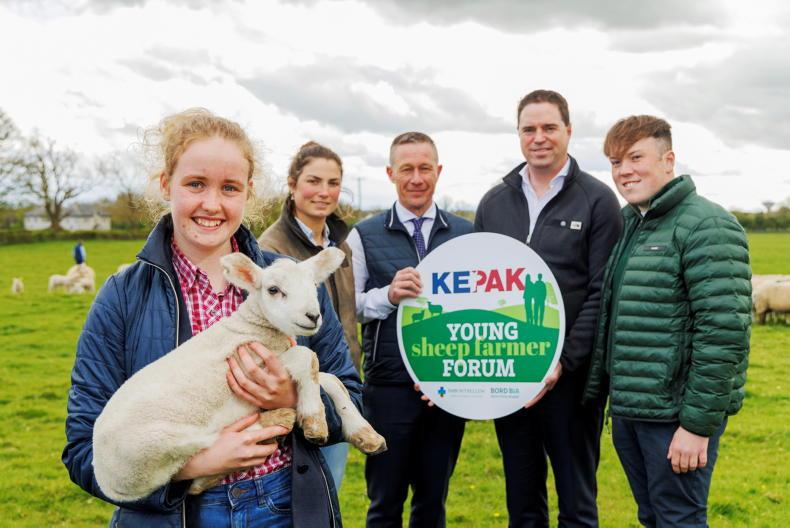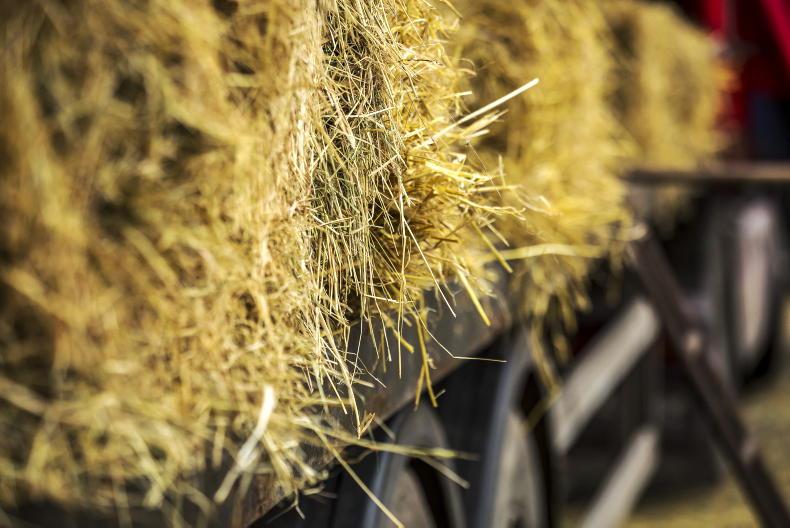A new European Innovation Partnership project titled Enable Conservation Tillage (ECT) was officially launched this week.
The five-year project aims to improve farmers' knowledge of grassweed control in the context of conservation agriculture.
In 2017, 12 locally led farming and rural economy initiatives were selected to receive funding under the European Innovation Partnerships (EIP) initiative.
These new initiatives involved groups coming together to develop and implement innovative ideas to address a specific challenge.
This Teagasc-led EIP includes an operational group consisting of farmer groups (Claydon Group, BASE Ireland) along with industry, seed assemblers, researchers, specialists and advisers, as well as UK based ADAS.
The project

A new European Innovation Partnership project called ‘Enable Conservation Tillage (ECT)’ was launched at the Teagasc crops research centre in Oak Park, Carlow. Picture with the project participants were; Michael Hennessy, Head of Crops Knowledge Transfer in Teagasc and Project Leader, Jimmy Staples, ECT Project advisor and Project Consultant Dr Sarah Cook, from ADAS in the UK.
The project aims to enable the adoption of conservation agriculture practices on Irish tillage farms, by providing farmers with the knowledge skills and capacity to achieve effective grass weed control and prioritise farmer-to-farmer knowledge and innovation exchange.
It will equip growers and industry with the knowledge and tools to identify the grass weed, quantify the population and address the problem on farm.
This will be achieved through a number of initiatives, including establishing a network of 10 tillage focus farms, encompassing both CA and conventional growers.
The key grass weeds are bromes, canary grasses, wild oats and blackgrass.
These weeds have increased in number and severity in recent years and will be the focus of this project.
Farmer involvement
As reported in April, Teagasc searched for 10 farmers to take part in this five-year project. The search has now been completed and growers from Louth to Cork have been selected to take part in the project.
Selected farms will operate as normal, but the farmer is expected to work with the project team and have an interest in developing knowledge and practice in this area.
An area of approximately 30ac will be selected as a focused validation area (FVA) on each farm.
The selected field will continue to be farmed as normal, but it will form the main demonstration area for the project.
The FVA will be divided into three sections based on grassweed control practice:
Existing practice: this will reflect the existing weed control and management practices on the farm to date.Best practice: this will include a number of additional actions on top of existing practices.Enhanced practice: the third area will include additional measures on top of best practice in order to achieve more thorough weed control.The FVA will remain in the same location on each farm for the duration of the project.
This will serve as a means of comparing management practices within each farm and to some extent across farms with different establishment systems.
A dedicated adviser, researcher and technician assigned to the project will work closely with each farm to develop the grassweed control programme.
Read more
Watch: setting up a clay and silt trap in the fields
Grain markets: domestic markets quiet but price remains steady
A new European Innovation Partnership project titled Enable Conservation Tillage (ECT) was officially launched this week.
The five-year project aims to improve farmers' knowledge of grassweed control in the context of conservation agriculture.
In 2017, 12 locally led farming and rural economy initiatives were selected to receive funding under the European Innovation Partnerships (EIP) initiative.
These new initiatives involved groups coming together to develop and implement innovative ideas to address a specific challenge.
This Teagasc-led EIP includes an operational group consisting of farmer groups (Claydon Group, BASE Ireland) along with industry, seed assemblers, researchers, specialists and advisers, as well as UK based ADAS.
The project

A new European Innovation Partnership project called ‘Enable Conservation Tillage (ECT)’ was launched at the Teagasc crops research centre in Oak Park, Carlow. Picture with the project participants were; Michael Hennessy, Head of Crops Knowledge Transfer in Teagasc and Project Leader, Jimmy Staples, ECT Project advisor and Project Consultant Dr Sarah Cook, from ADAS in the UK.
The project aims to enable the adoption of conservation agriculture practices on Irish tillage farms, by providing farmers with the knowledge skills and capacity to achieve effective grass weed control and prioritise farmer-to-farmer knowledge and innovation exchange.
It will equip growers and industry with the knowledge and tools to identify the grass weed, quantify the population and address the problem on farm.
This will be achieved through a number of initiatives, including establishing a network of 10 tillage focus farms, encompassing both CA and conventional growers.
The key grass weeds are bromes, canary grasses, wild oats and blackgrass.
These weeds have increased in number and severity in recent years and will be the focus of this project.
Farmer involvement
As reported in April, Teagasc searched for 10 farmers to take part in this five-year project. The search has now been completed and growers from Louth to Cork have been selected to take part in the project.
Selected farms will operate as normal, but the farmer is expected to work with the project team and have an interest in developing knowledge and practice in this area.
An area of approximately 30ac will be selected as a focused validation area (FVA) on each farm.
The selected field will continue to be farmed as normal, but it will form the main demonstration area for the project.
The FVA will be divided into three sections based on grassweed control practice:
Existing practice: this will reflect the existing weed control and management practices on the farm to date.Best practice: this will include a number of additional actions on top of existing practices.Enhanced practice: the third area will include additional measures on top of best practice in order to achieve more thorough weed control.The FVA will remain in the same location on each farm for the duration of the project.
This will serve as a means of comparing management practices within each farm and to some extent across farms with different establishment systems.
A dedicated adviser, researcher and technician assigned to the project will work closely with each farm to develop the grassweed control programme.
Read more
Watch: setting up a clay and silt trap in the fields
Grain markets: domestic markets quiet but price remains steady












SHARING OPTIONS